
The Silk Road: Chinese Interior Design
Gung hay fat choy to all our readers celebrating the Chinese New Year! Following the start of our The Silk Road series in Japan, in today’s blog we’ll be doing a deep dive into the fascinating world of Chinese interior design, including the colours, materials and shapes used throughout this amazing diverse part of the world. With 2022 welcoming in the Year of The Tiger, now could be the time to be brave and add some Chinese-inspired excitement into your home décor!
What is Chinese interior design?
China is a remarkably diverse country of over 50 different peoples, cultures, and traditions, but over the centuries, a distinctly Chinese interior has evolved and flourished into something we can all appreciate and enjoy.
The meaning of Chinese home decor
At its core, Chinese interior design is linked to the philosophy of zen. Originating in China, zen is heavily associated with relaxation and oneness with the universe. In interior design, it helps us to relax and unwind, and find peace after a hard day.
How to achieve the traditional Chinese interior design look
To help maximise the tranquil aura of the home, many of the most beautiful Chinese residences use natural materials, soft colours, and straight lines. Moreover, because of its flexibility, Chinese interior design is also compatible with other cultures found around the world, especially Scandi design.
Finally, another core facet of Chinese interiors is wide open spaces, which can be temporarily partitioned depending on circumstance. An excellent way to enjoy this is by using panel blinds to separate a kitchen and living room in a dual-purpose space.
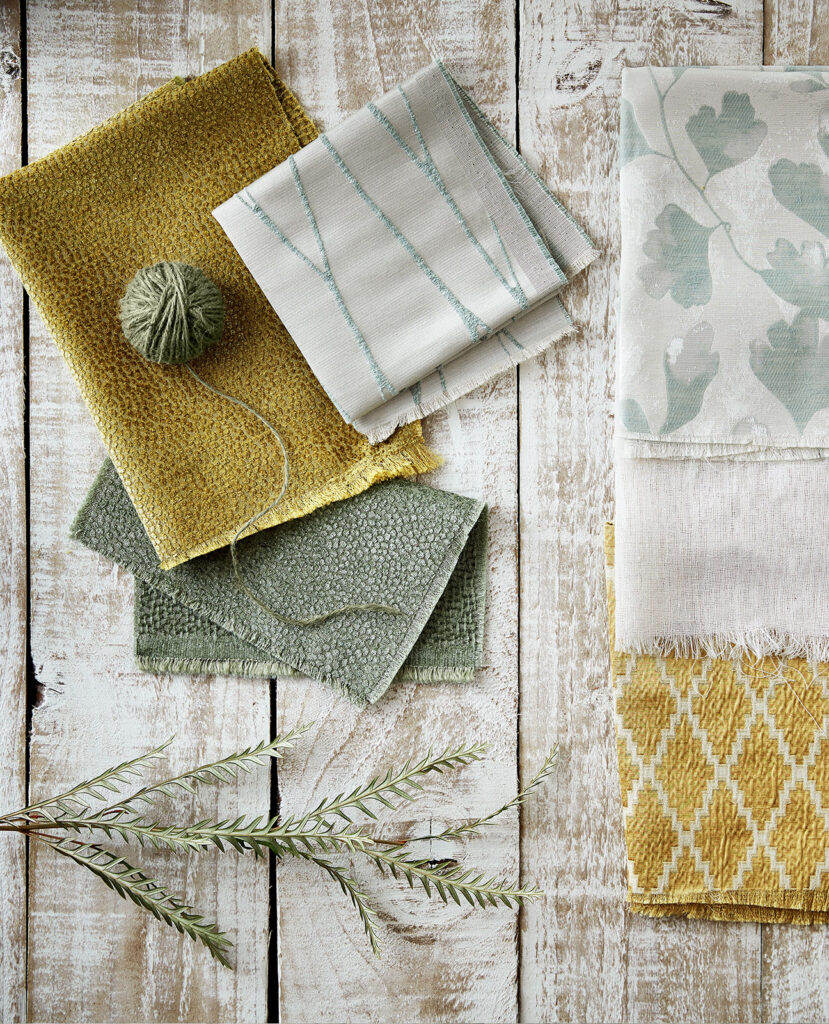
The best colours for Chinese home decorations
Using natural tones
Contrasting natural tones are integral to Chinese inspired interior design. For example, shades of off white, creams and cotton tones, combined with contemplative dark greys with interjecting brighter tones are a fantastic foundation for today’s topic.
Spot colours
These additional spot colours can vary in a range of tones from duck egg blue to soft shades of yellow, natural greens to bronzy browns.
How to use these colours in your home
Enjoy soft off-white painted walls with anthracite furniture and, to offset them, a large patterned teal Roman blind or roller blind. While you can of course enjoy using curtains, the more rigid shapes of a Roman or roller blind will help to better capture the essence of a Chinese interior.
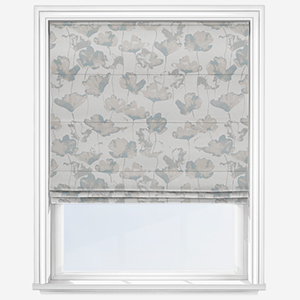
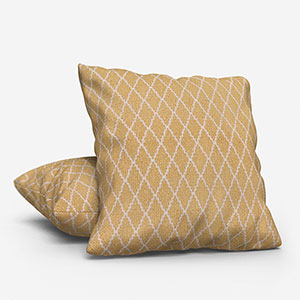
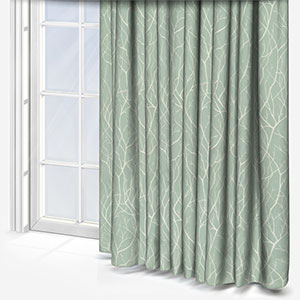
Chinese inspired patterns
Choosing the right ratio
When it comes to enjoying patterns in your décor, think of a ratio of 2:1. If you have block colours on the walls and furniture, you can then enjoy a patterned window furnishing – or any combination of the three.
Nature-inspired Chinese designs
Patterns synonymous with Chinese interior design often include birds and fruit. These nature-inspired designs remind us of the greater world outside our homes while creating a refreshing and comfortable environment inside.
Tips for including Chinese patterns in your interior design
At Blinds Direct, we have an excellent selection of nature inspired blinds, curtains, cushions and even lamp shades, each of which has been lovingly crafted in the UK. If birds and plants aren’t quite your cup of tea, channel the power of this year’s zodiac animal and select a quality Roman blind featuring a noble tiger!
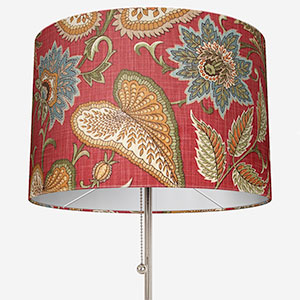
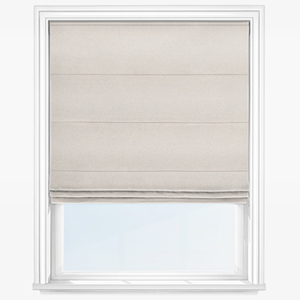
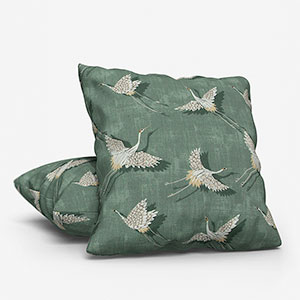
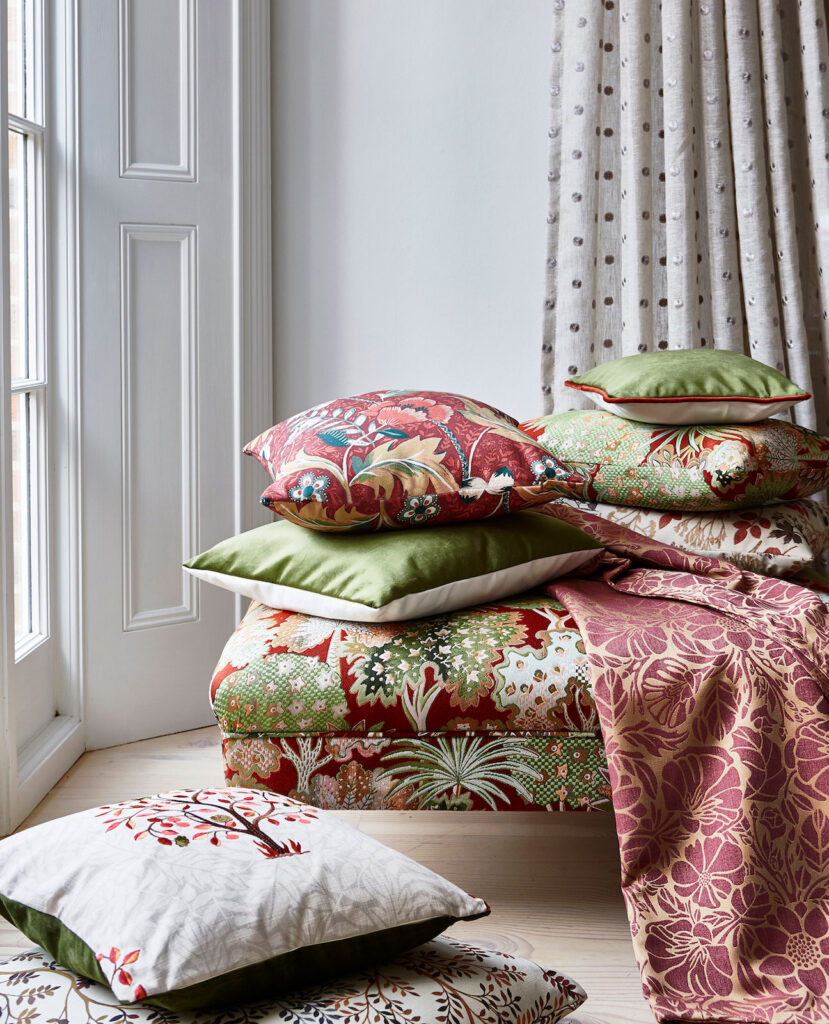
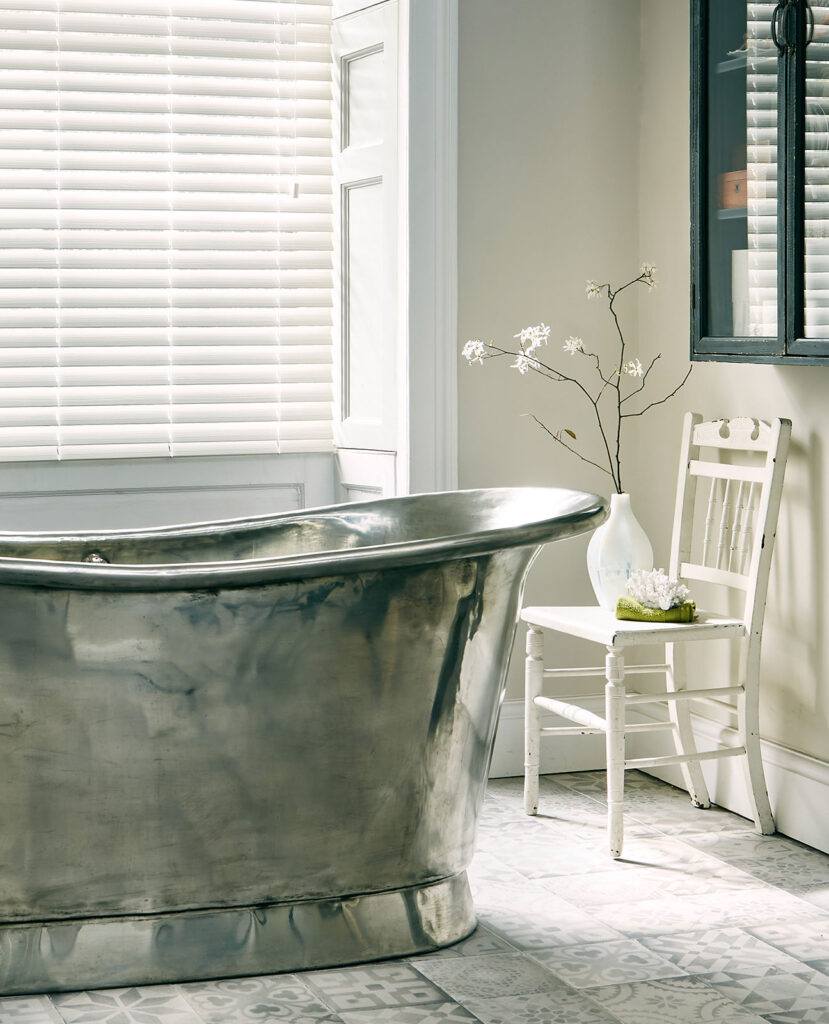
The materials used in Chinese interior design
Bamboo
One of the most obvious materials to use in Chinese interior design is bamboo. There are pieces of furniture, tables, and lamps available in this almost sacred material, but there are many more materials which you can use to equally great effect.
Wools, linens and silks
Keeping with the principles of zen and the patterns we’ve just discussed, nature is integral to this trend. Wools, linens, and silks are perfect fabrics to consider around the windows and for your furniture – like wise wood which retains its natural colour will work well too.
What materials are best for a Chinese inspired bathroom?
Since water plays an important part in a zen space, adding touches of Chinese design in the bathroom will help you easily relax and unwind. If you want to enjoy the beauty of a wooden blind in such a moisture rich environment, opt for a faux wooden blind which won’t warp or crack. You can easily make up for this non-natural material with plenty of leafy green plants to relax around.
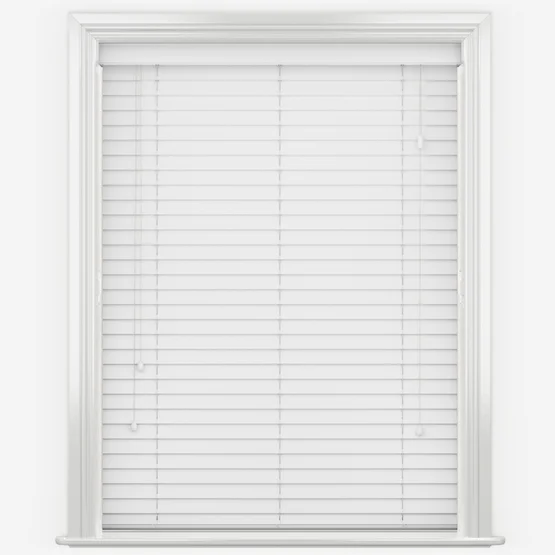
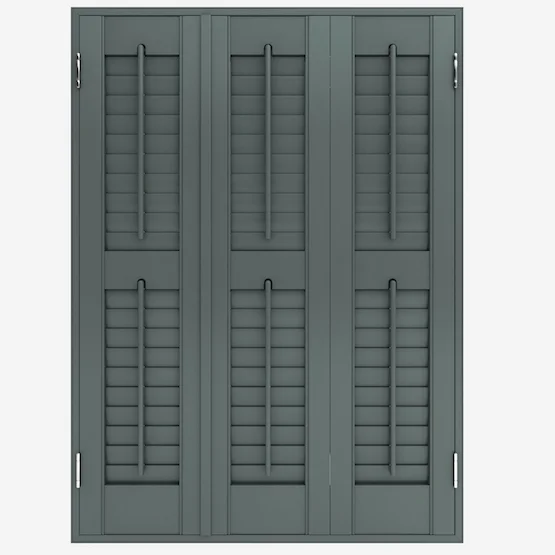

We hope you’ve enjoyed this exploration into the exciting yet relaxing world of Chinese interior design! Next month, we’ll be investigating the influence of Mongolia in today’s interiors, before returning to the silk road, west through central Asia, the Middle East and back to Europe.


